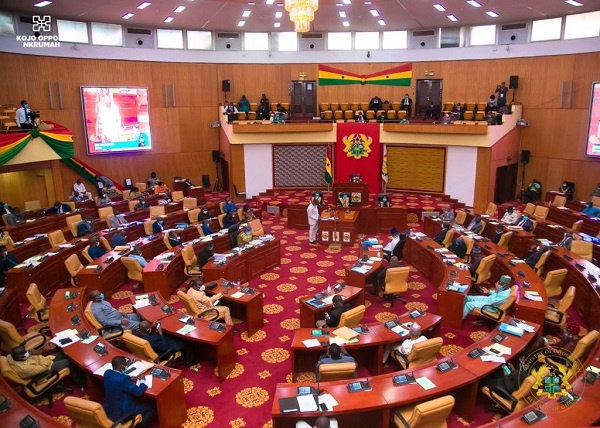A Pressure group OccupyGhana has called upon Parliament to, as a matter of urgency, draft, consider and pass the required legislation that will give to article 181(5) the clarity anticipated by the framers of the Constitution, demanded by the Supreme Court and prayed for by the Executive through the Attorney-General.
Article 181(5) of the Constitution applies its loan approval procedures involving parliamentary approval, to international business and economic transactions, in the following terms: ‘This article shall, WITH THE NECESSARY MODIFICATIONS BY PARLIAMENT, apply to an international business or economic transaction to which the Government is a party as it applies to a loan’ [emphasis ours.]
Occupy Ghana in a statement said although the framers of the Constitution wanted such transactions to have parliamentary oversight (just as loans), they anticipated that some modifications would be necessarily required to make them apposite, and therefore empowered Parliament to take legislative action in that regard.
“It cannot be seriously contended that Parliament has not found that there are any modifications are required. The facts show that Parliament’s inaction has left a huge gap in our governance structure, allowing ministers to do as they please and sadly ceded this important law-making function to the Supreme Court. “
Thus, based on the ‘accident’ of litigation, the Supreme Court has been compelled, not only to interpret article 181(5) but to make rules governing its application; something Parliament should have done. Thus, in cases such as ATTORNEY-GENERAL v FAROE ATLANTIC, KLOMEGA v ATTORNEY-GENERAL, ATTORNEY-GENERAL v BALKAN ENERGY, and AMIDU v ATTORNEY-GENERAL, the Supreme Court has been practically compelled to ‘legislate’ on this matter, and lay down the conditions for it, a constitutional function that Parliament has clearly abdicated.
Particularly in ATTORNEY-GENERAL v BALKAN ENERGY, one can literally feel the desperation of the Supreme Court as it was compelled to ‘imply’ the word ‘major’ into article 181(5) and define that term as it felt appropriate. The Court added:
“We do… agree with the defendants that Parliament needs to exercise its legislative power in relation to article 181(5) in order to clarify which transactions are to be viewed as major…
It is… imperative that Parliament takes up early the challenge of framing the modifications to article 181 needed to give greater certainty and clarity as to what categories of international business or economic transactions to which the Government is a party come within the ambit of Article 181(5). In the interim, a certification by the Attorney-General that an international business transaction to which the Government is a party is “major” or not should be accorded great weight by the courts, although it cannot be conclusive. We are here, of course, referring to the Attorney-General’s certification before a dispute has arisen between the Government and any party.’
Source: Mybrytfmonline.com/Kofi Atakora


















































